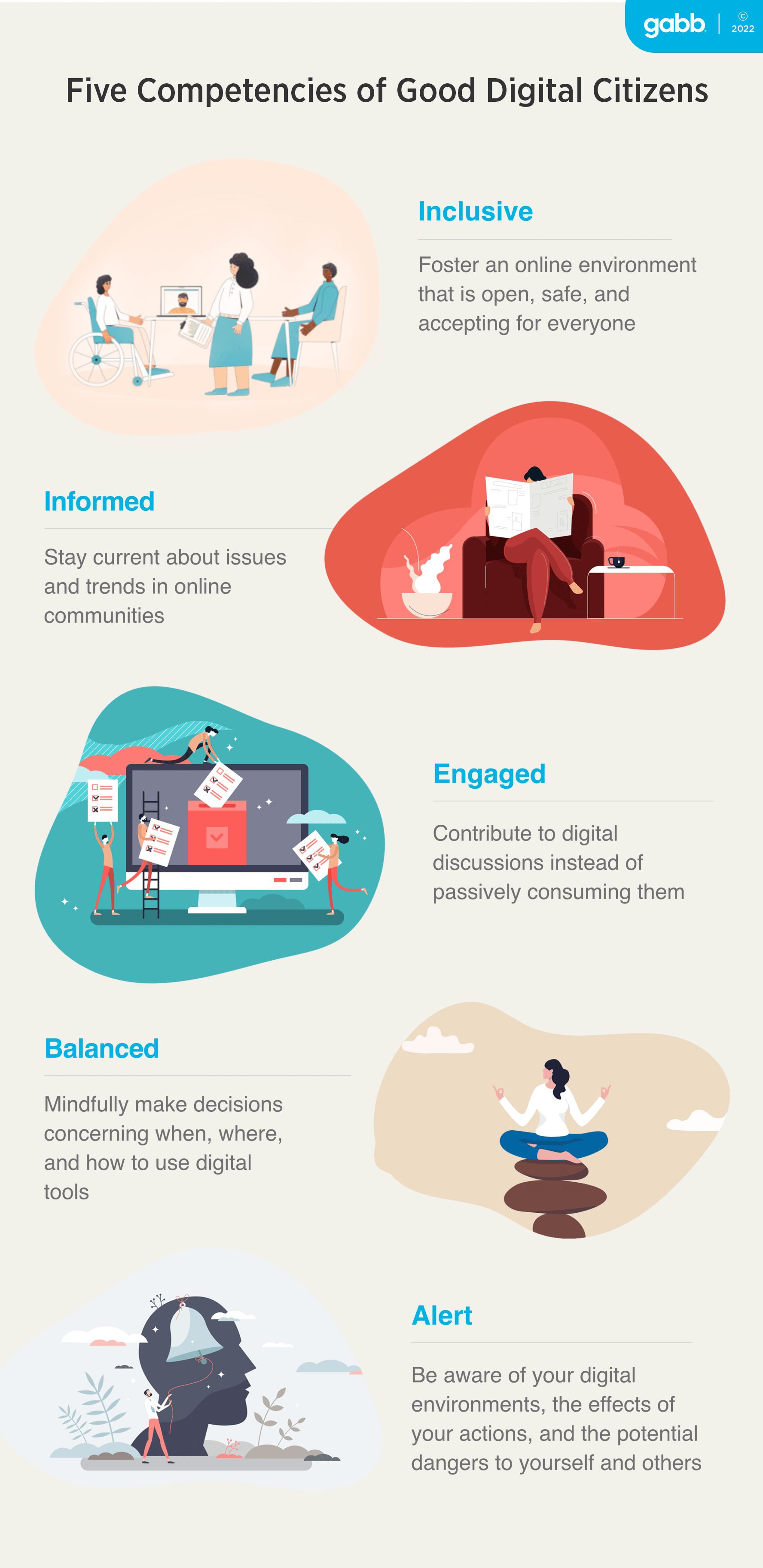Stories of online predators, inappropriate content on children’s games, and lack of effective controls on popular apps have many parents ready to throw their hands up—unsure of what to do with technology in their families.
No single measure or hidden tip will solve all your family’s tech problems, but there is one thing that can make a huge difference. That’s digital citizenship.
We can prepare our children to thrive in digital spaces by understanding more about how the virtual world works and applying some practical strategies for teaching our kids to use technology for good in their lives.
—Richard Culatta, CEO of The International Society for Technology in Education (ISTE)
What is Digital Citizenship?
Digital citizenship includes all the rights and responsibilities needed to engage in a digital community in a meaningful and safe way.
Put another way, citizens of a country, state, or city should have certain freedoms (such as the right to a fair trial or freedom of speech). Likewise, they have legal obligations (think jury duty, obeying the law, or pulling over for a policeman) that they must fulfill to be considered “productive members” of their community.
Similar responsibilities apply to one’s digital community.
In other words, citizenship in the “real world” is both what you owe to your community and what your community owes to you.
Citizenship in the digital world is the same—what you can expect from your online community and what you can expect to do for your online community.

Why Is Digital Citizenship Important for Kids?
Parents need to know about digital citizenship because this skill will impact their children’s digital lives. Digital citizenship is all about using tech to improve well-being, provide safety, and protect communities. It can make your child happier, safer, and more productive.
On the other hand, without an understanding of digital citizenship principles, children will accomplish less, struggle more to have control over their digital lives, and will be more vulnerable to online risks.
Digital citizenship improves well-being
When kids have strong digital citizenship skills, their well-being improves. Kids will have a better chance as they use technology to enhance their life instead of letting it harm them.
Children with a high level of digital citizenship not only know how to use technology, they know when to use it, when not to use it, and what to use it for.
When young people learn more, they have more opportunities to use tech to accomplish their goals and dreams.

Digital citizenship provides safety
Young people who understand and practice the principles of good digital citizenship are more able to protect themselves from online dangers like internet predators, explicit content, scams, and tech addictions.
They develop a more keen sense of what to avoid and what to do if they find themselves in a sketchy situation. They are more aware of the resources available to support them and whom to go to when they need help.
Digital citizenship protects communities
Being a good digital citizen doesn’t just protect your child; it makes their whole community safer. A rising tide lifts all boats; the same is true for digital citizenship.
For example, young people who understand how to report and block online predators help protect potential victims that the predator would have targeted next.
Likewise, by supporting efforts to require social media companies to provide effective parental controls, good digital citizens lift their community.
Digital citizenship can:
- Improve children’s well-being
- Increase online personal safety
- Protect other community members
The Five Competencies of Digital Citizenship
The International Society for Technology in Education (ISTE) promotes five competencies that encourage being a good digital citizen1.
Inclusive
Good digital citizens are considerate. They follow the golden rule and treat others how they would want to be treated. In all their interactions, they show respect and remain civil.
They are seeking experiences and perspectives different from their own. Instead of tearing people down, they strive to build them up whenever possible.
These kids realize that listening to another viewpoint does not mean they must agree. It is simply showing respect and hoping to engage in civil discourse.
Informed
An informed digital citizen is aware of what is happening in their communities. They validate the accuracy and authenticity of the news, social media statuses, and the other forms of digital media they consume.
They know to question the content they see and to look for bias.
They consider the THINK acronym before posting or sharing anything: is this true, helpful, inspiring, necessary, and kind?

Engaged
Digital citizens who are engaged actively participate in their communities. They don’t just passively consume content; they help create it.
They try to solve problems and improve their digital spaces for themselves and others.
Parents know best how and when to allow children to become content creators. These skills are best practiced offline for many years until kids are at less risk of experiencing the damage that can come from being active on social media platforms.
Balanced
Achieving balance is about making conscious decisions regarding one’s digital activities. Balanced digital citizens don’t just go with the flow; they use technology with a purpose to accomplish their goals.
Digital citizens understand how to set appropriate technology boundaries and know when to step away from using digital tools.
Parents can model this balance, knowing it will impact their children’s future choices.
Alert
Someone with a high level of digital citizenship is alert to what they’re doing and aware of the effect their actions have on the people around them.
They protect personal information and stay aware of security issues for themselves and others. Within their digital communities, they are aware of the dangers and risks involved in staying safe.
Helping Your Kids Become Good Digital Citizens
There are many great resources that can teach you how to help your kids become expert digital citizens. Many parents successfully utilize safe phones to teach their children through tech in steps.
Parents can also consider Common Sense Media with its fantastic digital citizenship curriculum for kids of all ages.
Being a great digital citizen yourself will help kids. To stay informed, engaged, alert, balanced, and inclusive, visit Gabb Family Resources to receive the latest research about parenting in the digital age.
References
- Fingal, J. (2021, October 12). The 5 competencies of digital citizenship. International Society for Technology in Education (ISTE). Retrieved June 1, 2022, from https://www.iste.org/explore/5-competencies-digital-citizenship










Success!
Your comment has been submitted for review! We will notify you when it has been approved and posted!
Thank you!